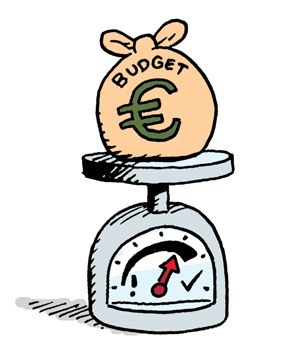Budget 2022 - Delivering a Fair Recovery

Budget 2022 must build on the lessons learned from the pandemic. The choices Government makes must be focused on building a future that is prosperous, sustainable and fair. To this end Budget 2022 should be socially progressive and promote wellbeing. Despite the immediate uncertainty, Budget 2022 must embrace the need for new approaches to how we as a society prioritise choices. People, well-being, public services and a widespread and fair recovery must come first.
Ireland stands at a major moment of change and looks to a future beyond COVID-19. The pandemic has changed our views on the way we were and on the way we want to be. It exposed a range of issues that were not being adequately addressed and it has changed many people’s priorities as we face the future. In Budget 2022, Government has the opportunity to deliver a fair recovery and build a future that is prosperous, sustainable and fair. In Budget Choices 2022 we set out how this can be done.
Fiscal Stance
It is vital that the fiscal stance adopted by Ireland in response to the Covid-19 crisis supports an economic recovery. Given the scale of disruption caused by the pandemic, it must be recognised that extraordinary Government expenditure will be required to sustain demand and to support incomes as we work our way through the recovery period, and through the return to a new, sustainable, long-term trajectory for the economy.
Ireland’s fiscal stance for Budget 2022 must be primarily focused on supporting demand by supporting the incomes of citizens and through Government capital expenditure. We must not make the mistake of focusing primarily on some arbitrary deficit target.
Challenges
We face many challenges, most of which pre-date the pandemic. These include a persistent child poverty problem, the low pay of many of our essential workers, a two-tier health system and youth unemployment.
Ireland’s housing crisis continues with the possibility of purchasing a home moving further and further away from the vast majority of the population as costs escalate dramatically. Homelessness has been reduced but social housing provision is far less than what is required. Rents continue to be exorbitant.
Lessons for Budget 2022
One thing we have learned from Ireland’s response to the pandemic is that the State may need to expand so as to deal effectively with challenges. In responding to Covid-19, Government made the changes required to protect both society and the economy and the common good featured prominently in planning and delivery. The State, the only institution with the required capacity to address the pandemic, expanded to meet the challenge. Yes, mistakes were made in responding to Covid. But lessons were learned; protecting jobs, services and a minimum standard of living were priorities. Now is the time to build on this learning as Budget 2022 is prepared.
Another thing we learned during the pandemic is that when we want to really tackle big challenges we can do so at speed. That is a lesson most Irish people want Government to act on in the period immediately ahead.
Delivering a Fair Recovery
Proceeding as we did before the pandemic will not address the challenges Ireland faces, challenges that existed before the arrival of COVID-19. A new Social Contract is needed and it should be focused on building a sustainable and resilient economic recovery that delivers for everyone.
A new Social Contract that truly delivers for everyone requires a vibrant economy, decent services and infrastructure, just taxation, good governance and sustainability. We must start in Budget 2022. All of the proposals contained in ‘Budget 2022 – Delivering a Fair Recovery’ are focused on building a prosperous, sustainable and fair future and doing so in a fiscally prudent manner.
Download Budget Choices 2022 HERE
Summary of Key Packages:
- Housing: €4,529m prioritising increased investment in social housing, an end to the Help to Buy Scheme and investment in homelessness prevention. (p. 8 of Budget Choices)
- Rural, Regional and Community Development: €458m investment prioritising the rollout 400 remote working hub and supporting infrastructure, as well as additional investment in rural transport, and the development of rural enterprise and tourism, and increased funding for the community and voluntary sector. (p. 10 of Budget Choices)
- Healthcare and disability: €1,777m investment prioritising social and community care, disability, mental health and Sláintecare. (p. 11 of Budget Choices)
- Education: €274m investment in areas such as reducing class sizes, adult literacy, DEIS, skills development, community education, digital education and higher education. (p. 12 of Budget Choices)
- Sustainability: €239m investment including funding for renewable energy, biodiversity, Just Transition and the Circular Economy. (p. 14 of Budget Choices)
- Children and Families: €734m focused on Early Childhood Care and Education, paternity leave, a Living Wage for childcare workers and implementation of the White Paper on Direct Provision. (p. 12 of Budget Choices)
- Pensions and Older People: €1,041m prioritising a universal pension, investment in social care and Home Care Packages and increased funding for nursing homes. (p. 13 of Budget Choices)
Taxation Reform: (P4-7 of Budget Choices)
- Minimum Effective Rate of Corporation Tax - €1,000m
- Standard rate pension-related tax reliefs - €423m
- Standard rate discretionary non-pension tax expenditures - €147m
- Improve the monitoring of tax expenditures.